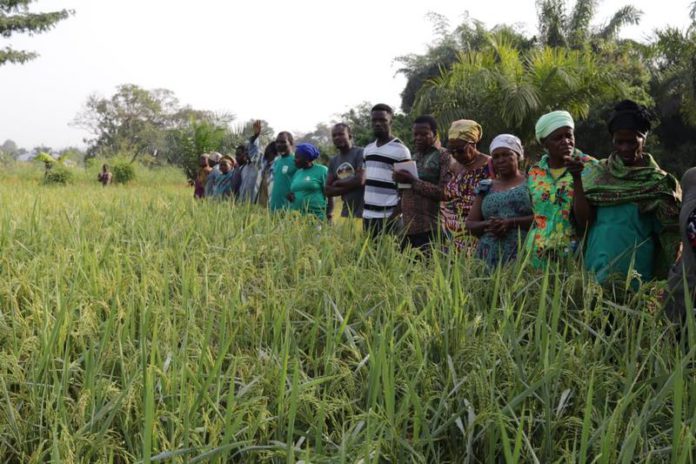
The Sahara and Sahel Observatory (OSS), with support from the Adaptation Fund, has successfully implemented the ‘Scaling Up Climate-Resilient Rice Production’ initiative for rice farmers in the Oti and Volta regions.
The execution of the RICOWAS trial, strategically focusing on Rice Intensification (SRI) and Participatory Variety Selection (PVS), involved a systematic approach deployed across the diverse agroecological landscapes of the Ashanti, Volta, Oti, and Western North regions of Ghana.
This comprehensive methodology encompassed meticulous planning and execution for SRI, PVS, and its accompanying training program, ensuring a robust evaluation of rice cultivation dynamics.
The trial outcomes indicate significant progress in the implementation of the Scaling-up Climate-Resilient Rice Production in West Africa (RICOWAS) project across the Ashanti, Volta, Oti, and Western North regions of Ghana.
With 15 out of 17 System of Rice Intensification (SRI) trials and 17 out of 17 Participatory Variety Selection (PVS) trials already established, the project has achieved a commendable level of coverage.
This distribution reflects a strategic approach to ensure the successful integration of climate-resilient rice production practices in diverse agroecological conditions, promoting sustainability and innovation in local farming communities.
The RICOWAS Training Workshop was a collaborative and enriching experience, bringing together a network of professionals, scientists, and local stakeholders committed to advancing rice production in the face of climate challenges.
The fusion of theoretical knowledge, practical skills, and regional insights positions the workshop as a catalyst for transformative change in the rice farming landscape.
In an interview with Adom News, William Lelabi Kota, an Agronomist at CSIR-Crops Research Institute, said the motive is to help train the farmers on the strategic approach to ensure the successful integration of climate-resilient rice production and to identify the variety of rice suitable for their land.
Some beneficiary farmers, after the training, expressed gratitude to the CSIR-Crops Research Institute and highlighted that, the training would enhance their rice farming practices.
They also called on the government to provide logistics and farm inputs to support their rice farming efforts.
